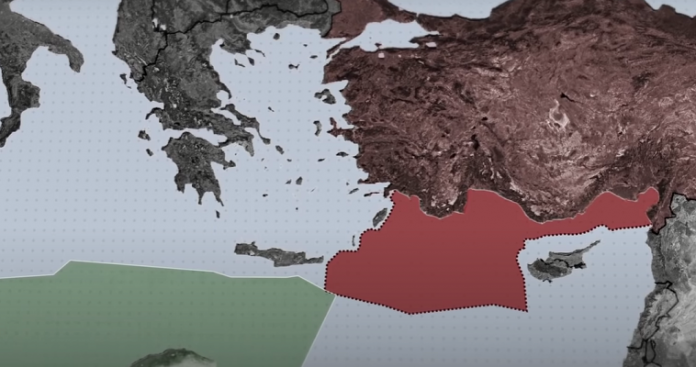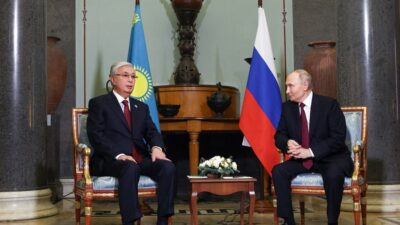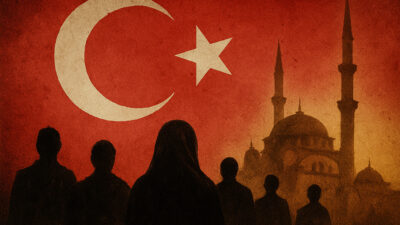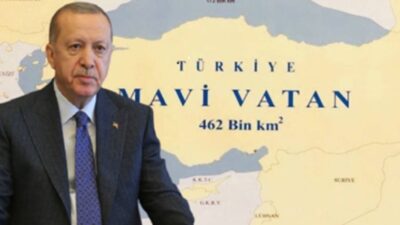Heraklis Roupas: “Blue Homeland” the Turkish version of the German expansionist Lebensraum
26/08/2020
The outcome of the extraordinary meeting of EU foreign ministers, during which Germany did not agree to the publication of the joint statement proposed by Nikos Dendias, is more or less known. But it was an occasion to remind us that the country that promoted the concept of “living space” (Lebensraum) and led the world to two World Wars (claiming this space) seems unable, or unwilling, to include in its goals defending a single/unified “European living space”, based on common European borders.
It is precisely this deliberately disguised political apathy, not only of Germany but also of other member states, that forms the field of an international political agenda where the redefinition of the “single European area” will now be left to the individual perception of each member state or group of countries. members. Always on the basis of identifying special interests during the reporting period.
That is why the ratification of the EEZ agreements with Egypt and Italy highlights for the first time, after the Imia crisis, a policy of claiming vital space. In the last decade, when geopolitical balances have been reshaped, a peculiar emergence of political “changing living spaces” has emerged. This both inside and outside the EU, through the pursuit of hybrid alliances, often outside the seemingly agreed upon common EU foreign policy.
This dynamic liquidity in terms of forming alliances, but meaningless in terms of collective policy, is beginning to highlight the essential inability of Europe to pursue a single foreign and economic policy. Unfortunately, if we want to read the data objectively, we have to make a basic point.
The EU is losing pace
Some northern countries (most notably Germany), in pursuit of a common geopolitical focus, seem to be redefining as paramount, the strong historical and trade ties with countries such as Turkey, which have long been involved in claiming their “living space,” essentially ignoring any notion of collective European foreign policy.
In the context of the historically and institutionally unacceptable trend, the Greek government should not agree to the resumption of an exploratory dialogue with Turkey, before the imposition of sanctions by the EU. It may constitute the basis of negotiating tactics, with the aim of highlighting conflicting opposing “currents” prevailing at this stage.
The actual exposure of the weakness to formulate a single policy, combined with the choice to pursue a rift within Europe (in relation to the real threat of Turkey) may give Greece further time to reorganize. Reorganization in all areas related to the claim of a new overall framework of a national “living space”. It is becoming clear that the EU has lost its unified pace.
We found this out through the inability to decide on the European Development Fund. We realized this again, just a few days ago, when Germany refused to consent to the issuance of a joint statement condemning Turkey. The pretentious explanation of an “informal” summit (hence not producing policy) could only be described as a joke, at the same time that an extraordinary Summit on Belarus was convened.
Turkey claims Lebensraum
The most probable reason – according to many – was the uninformed signing of the memorandum securing part of Greek national “living space”, through the partial delimitation of the EEZ with Egypt. It is precisely this reaction to the many years of delayed proclamation and delimitation of the EEZ, both with Egypt and Italy, that is now forcing Greece into a violent shift towards realism. This practically means that Greece realizes that the conflict with Turkey is inevitable. The question is exactly when it will happen.
The mistakes over time and the formulation of foreign policy on the basis of temporary appeasement, only managed to win time for Turkey to prepare and promote the policy of claiming “living space” to the detriment of Greece. Greece lost the advantage of initiatives to develop an updated agenda for claiming a national “living space”.
The choice of Turkey in this direction, based on the doctrine of the “Blue Homeland” is not accidental. It is part of the ongoing geostrategic rearrangements and the emergence of changing “vital spaces”. We lost the element that allowed Greece to enlarge its borders, after the failed war of 1897. And the crisis of 2009 deprived us of the possibility of continuing our strategic economic presence in the Balkans.
The end of delusion
It is known, however, that Greece achieved its goals when it promoted its own claim to “living space”. The Balkan Wars, the post-World War I campaign in Ukraine that allowed the landing in Izmir, are typical examples of political assertion. Both EU membership and the euro provided us with vitality.
Developments that ended up strengthening Greece in terms of the economy and development, but limiting the country in terms of the essential claim of an independent national “living space”. The financial crisis dissolved what was left. Inaction arose from the illusion that Europe had the ability and the will to create a single and strong living space.
This prospect may have been visible at a time when the global balance of power was being affected by the US-Russia dipole. Today things have changed significantly with the emergence of three poles of power and a sufficient number of regional forces claiming a role in the new international reality, through over-expansion. The Greek governments of the last decades have forgotten that the only defense is the emergence of maximalist negotiating and strategic positions and not their “graying”.
It therefore becomes imperative to redefine the national agenda, on the basis of a dynamic claim to a new national “living space”. After all, the demarcation of “living space” claims remains strong when it is planned with a long-term horizon. Israel and Turkey are typical examples of such a policy. In Greece we chose the easy way out of the inability to perceive reality, for the sake of short-term prosperity. There is no time to waste in realizing the harshness of the new reality.





